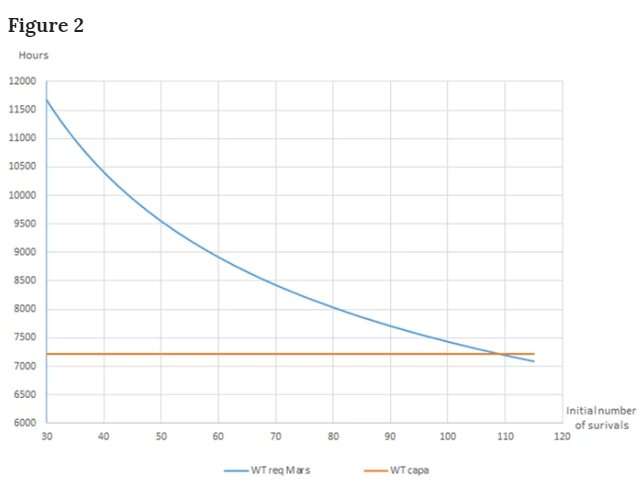Send Men to Mars, all space agencies dream. But before colonizing the Red Planet, it will be necessary to carefully prepare the trip and the installation on the spot.
A few months ago, NASA still hoped to send a very first manned mission to Mars in 2033 . But it is not yet a question of settling permanently on the Red Planet. Jean-Marc Salotti, a researcher at the Polytechnic Institute of Bordeaux and member of the Planète Mars association, however recently wondered how many men should be embarked on the adventure to ensure the survival of a colony on Mars . His answer: at least 110.
“I made the choice of certain starting hypotheses. But it’s complicated. There are many factors to consider. And finally, it is not so much the result obtained that counts, but the generic method developed to achieve it, ” explains Jean-Marc Salotti. A method at the heart of which we find the concept of “sharing factor” .
“My model is based on estimates of working time. Colonization of a planet can only be successful if the working time available – that which the colonists can provide – is greater than the working time required to ensure the survival of the colony, “ explains the researcher. With the idea that cooperation between the members of the colony makes it possible to share the burden generated by needs such as producing electricity, drinking water or oxygen .

Sharing and sustainability at the heart of the Martian colony
Cooperation also allows a certain specialization of the members of the colony. A specialization that brings productivity gains. Thus “the more members there are in a colony, the more the working time required for its survival increases. But it is increasing less and less quickly as the population also increases. The curve is logarithmic, ” remarks Jean-Marc Salotti for Futura. And when the colony reaches 110 people, the available working time finally becomes greater than the required working time.
“I also wanted to offer an original way of thinking about the problem of sustainable development, ” says the researcher. Project yourself on another planet to think differently. Learn to rely almost exclusively on solar energy , organize water recycling , manage indoor air quality efficiently or even ensure the robustness of equipment and standardize solutions. “This is part of my initial assumptions.































Discussion about this post